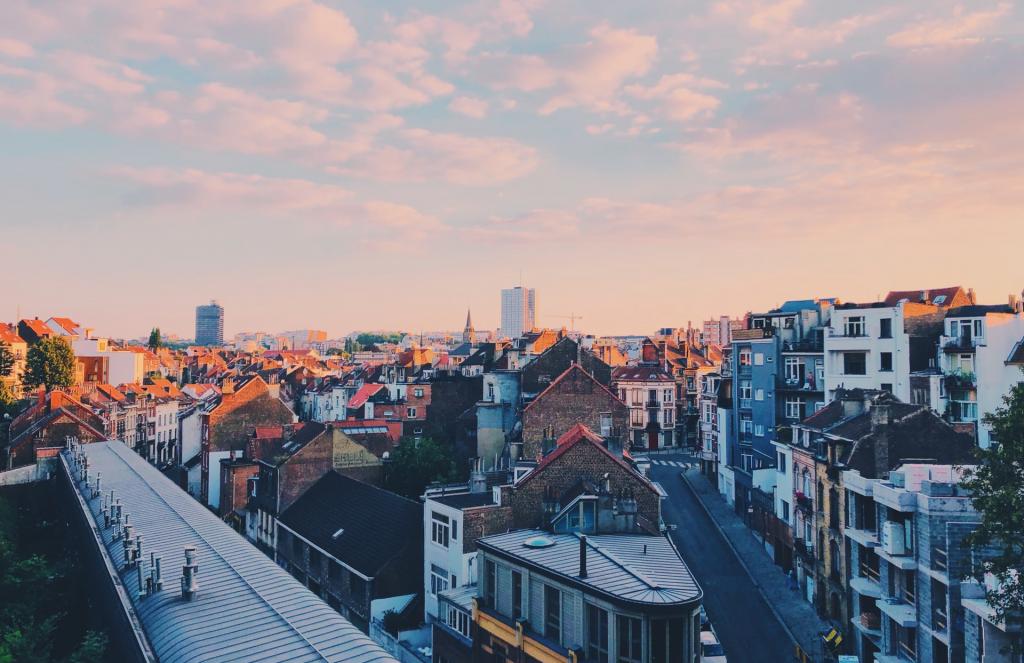Thessaloniki gets ready for its metro launch in November
The underground rapid transit lines have been under construction for almost two decades due to various project delays
 TheMayor.EU logo
TheMayor.EU logo 
According to Minister Alain Maron, there are around 6 million square metres of vacant living space in the city
The funds aim to cushion the housing crisis gripping the city and provide vulnerable groups with some additional relief
Last week, authorities in the Brussels Capital Region decided to raise the budget for supporting the occupation of empty buildings for social purposes to 1,3 million euros. This means that the budget rose by 35% compared to 2021.
The increase was proposed by Minister-President Rudi Vervoort as well as the Minister of Health and Social Action Alain Maron and Nawal Ben Hamou, Secretary of State for Housing, who cited COVID-19, the migration crisis and the crippling affordable housing crisis in the city as major reasons they support this type of emergency accommodation.
Essentially, this fund tries to find a legal framework to support and formalise squatting communities – people occupying empty buildings around the city. Furthermore, the fund also wants to cover the energy and insurance costs and, where applicable, the costs linked to the arrangements making it possible to guarantee the safety of the occupants.
However, there are a few criteria that occupants of vacant buildings need to fulfil in order to receive funding. First of all, the occupants need to be vulnerable people according to the local administration's criteria, which include minors and families with minor children. Furthermore, the occupants must have an agreement with the owner of the building and there must be less than 100 occupants on a given site.
According to Minister Alain Maron, the city has around 6 million square metres of living space tied up in vacant homes and these types of programmes can go a long way to untie this resource. He also explained that they are the missing link between social policy and housing.
Temporary occupation of vacant property has been a growing phenomenon in Brussels in recent years, with the compounding crises. Many people have seen a loss of income and have had a hard time finding accommodation, leading to a rise in homelessness, according to a statement of the city.
Rudi Vervoort, Minister-President of Brussels was quoted in a press release saying: “The Region has taken its share of responsibility to meet the challenge of emergency accommodation and to join the dynamics of mobilizing unoccupied buildings for social purposes. These are one-off means which obviously should not make us forget the imperative need to continue the search for structural and lasting solutions.”

The underground rapid transit lines have been under construction for almost two decades due to various project delays

Now you can get your wine in Talence by paying directly in Bitcoin

That’s because the state has to spend money on updating the railway infrastructure rather than subsidizing the cost of the popular pass

Rethinking renewable energy sources for the urban landscape

The examples, compiled by Beyond Fossil Fuels, can inform and inspire communities and entrepreneurs that still feel trepidation at the prospect of energy transition

Now you can get your wine in Talence by paying directly in Bitcoin

The 10th European Conference on Sustainable Cities and Towns (ESCT) sets the stage for stronger cooperation between the EU, national and local level to fast track Europe's transition to climate neutrality.

At least, that’s the promise made by the mayor of Paris, Anne Hidalgo

The underground rapid transit lines have been under construction for almost two decades due to various project delays

At least, that’s the promise made by the mayor of Paris, Anne Hidalgo

Hostal de Pinós is located in the geographical centre of the autonomous region

Despite its church-y name, the district has long been known as the hangout spot for the artsy crowds

Urban dwellers across the EU are having a say in making their surroundings friendlier to people and the environment.

Forests in the EU can help green the European construction industry and bolster a continent-wide push for architectural improvements.

Apply by 10 November and do your part for the transformation of European public spaces

An interview with the Mayor of a Polish city that seeks to reinvent itself

An interview with the newly elected ICLEI President and Mayor of Malmö

A conversation with the Mayor of Lisbon about the spirit and dimensions of innovation present in the Portuguese capital














